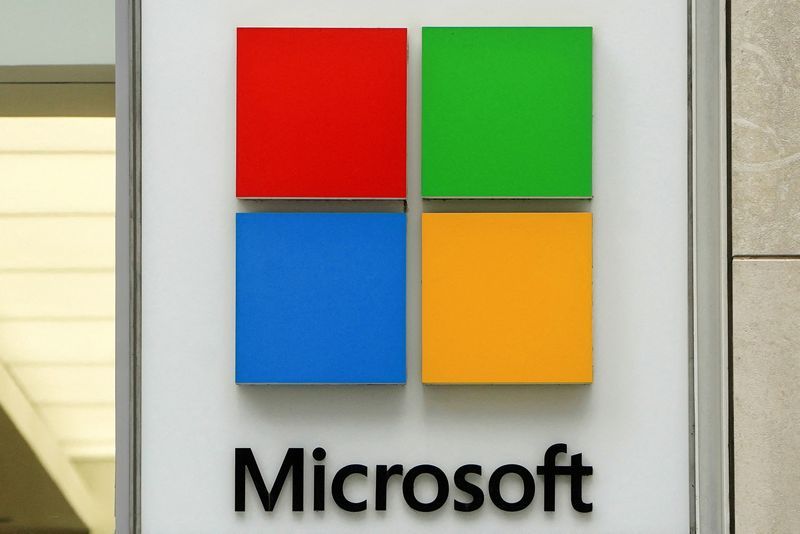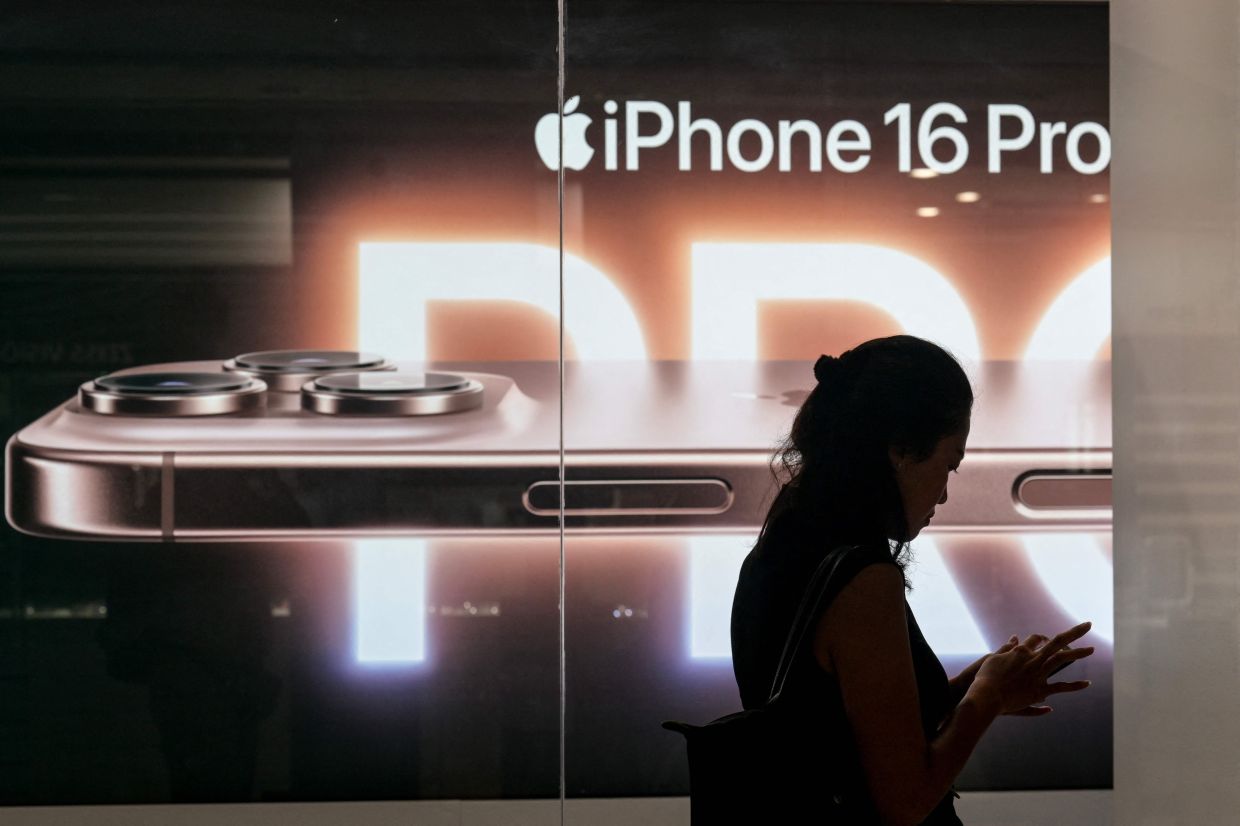
FILE PHOTO: The Microsoft store sign is pictured in the Manhattan borough of New York City, New York, U.S., January 18, 2022. REUTERS/Carlo Allegri/File Photo
(Reuters) - Microsoft has worked with a U.S. national laboratory to use artificial intelligence to rapidly identify a material that could mean producing batteries that require 70% less lithium than now, the company said on Tuesday.
The replacement of much of the lithium with sodium, a common element found in table salt, still needs extensive evaluation by scientists at Pacific Northwest National Laboratory (PNNL) in Richland, Washington to determine whether it will be suitable for mass production.
"Something that could have taken years, we did in two weeks," Jason Zander, an executive vice president at Microsoft, told Reuters. "That's the part we're most excited about. ... We just picked one problem. There are thousands of problems to go solve, and it's applicable to all of them."
The new technology could one day have applications in cars, energy grids and other places batteries are needed. It uses much less lithium, which is expensive to mine and concentrated in a few countries, and more sodium, which is cheap and abundant.
Brian Abrahamson, chief digital officer of PNNL, said in an interview that the process used to find an alternative battery material can be applied to many other chemistry and materials science problems the lab is working on.
Microsoft used a combination of artificial intelligence models trained on molecular science data and traditional scientific supercomputers.
It was able to narrow down more than 32 million possibilities to 18 candidates that the PNNL scientists then examined to decide which ones to synthesize and test in a lab.
"The magic here is in the speed of artificial intelligence, assisting in the identification of products and materials and our ability to put those ideas into action in a laboratory," Abrahamson said.
"All of that being brought to bear at the disposal of an individual scientist - this is this is a paradigm shift that we're looking at. To us, it holds tremendous promise."
(Reporting by Stephen Nellis in San Francisco; editing by Barbara Lewis)










































